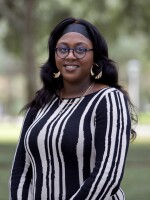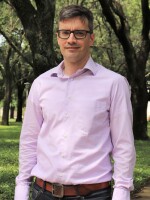Communities play a huge role in hurricane preparation and recovery.
And while government agencies help, they may not provide all you need after a natural disaster.
During this week's "Florida Matters," we spoke to nonprofit leaders, community members and others in a special one-hour episode airing Tuesday at 6:30 p.m. on how people can support each other before and after a storm.
One of the guests was Thomas Mantz, president and CEO of Feeding Tampa Bay.
He told host Matthew Peddie about the lessons his group learned from the trio of storms last year: Debby, Helene and Milton.
This conversation has been lightly edited for clarity and length.
How did Feeding Tampa Bay respond to three hurricanes in 2024, and do you believe your preparation was enough?
I think it's always important for communities to understand there's never enough resources.
The interesting part about the three storms, if you think about the latter two, one was a wind event and one was a water event. Both, obviously, are both.
But the reality is, the difference was what happened to dwellings. Obviously, you can hide from wind, run from water, but the longer-term damage to folks with water has been substantial. We are still supporting families that have come through the hurricanes eight, nine months later, almost 10 months later, I guess.
And so, I think that's one of the other things we understand about this, is in our world, every one week of crisis is usually a month of recovery, right? And so, it takes a while for folks that don't necessarily have resources to rebuild.
So, while we respond to pre-hurricane and prepping mid-hurricane and making sure folks can navigate their way through post-hurricane, we're rebuilding homes, you know, and pantries, and bringing resources in.
The realities for most folks, a good six months after a storm, you're still trying to figure out how to put your life back together. The average family we serve doesn't have more than $600 in savings, and so the resiliency is not necessarily always there.
So, I think folks need to understand that what we view as an emergent event that is time-bound and time-sensitive is not that at all. It creates a downstream impact that takes a while for communities to recover from.
When a hurricane strikes, your volunteers may be under pressure themselves. How does that affect what you do?
You know, I think one of the nice themes that's running through the conversation is the role of community in situations like this.
So, we're a volunteer-based organization. We'll have the benefit of probably 60,000 to 65,000 volunteers a year that support us all year long, and throughout the network that we serve, like just here in Pinellas County, we probably have 90 different nonprofits we work with and through, all of which are volunteer-based.
And I think it's one of the great things about who we are as a community, is the idea that folks look after each other.
But you know, for our teammates, for our community, personal safety and well-being always comes first.
So, you know, prior to, we have conversations with our teammates that say, if you need to go, go. We just need to know if you're going to go. And then we'll work with the ones that stay.
And then what often happens with the network of volunteers, they again have to take care of themselves. So, for us, it's all hands on deck.
After both storms, I spent a good time out here in Pinellas County, you know, unloading boxes and loading them into cars during the storm, because that's what we need to do in those moments. And then slowly but surely, the community comes back. They start volunteering when their safety is assured. And it's one of the great things that I think all of us get to experience in any place that we are.
You know, the funny thing about disasters is you see the absolute worst that can happen, and you experience the absolute best of people.
And the combination of the two is often, I've been doing this a long time, and it's something that never fails to impress me is that the kindness and thoughtfulness of a human being who will walk up and say, "Let me help. What can I do today?" Folks calling us saying, "Hey, I have extra this or that, you know, how can I be of assistance to our community?"
And so, what starts out as, you know, a pretty bleak moment for a whole lot of folks, there's a lot of grace that comes behind it that ultimately rebuilds communities.
You can hear the entire conversation with Mantz and others on a special one-hour episode of Florida Matters, airing Tuesday at 6:30 p.m. on WUSF, 89.7 FM.




